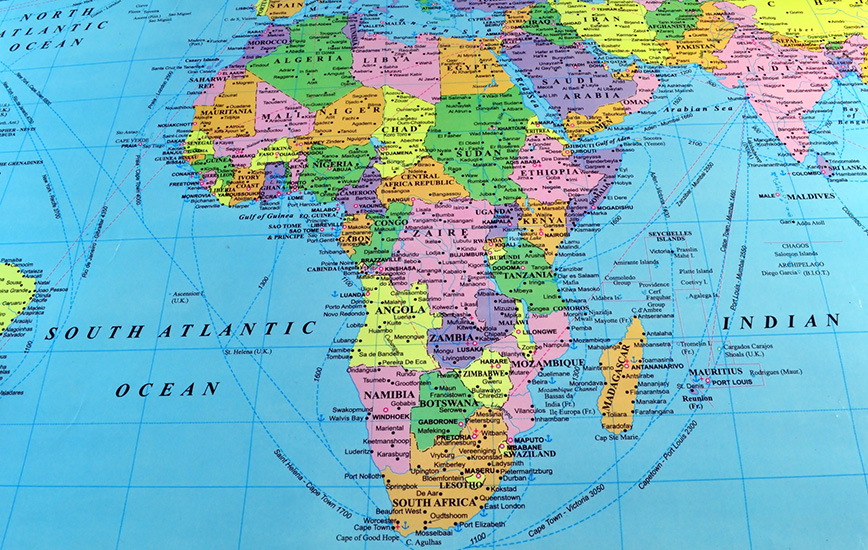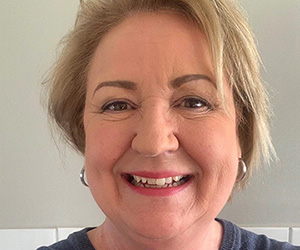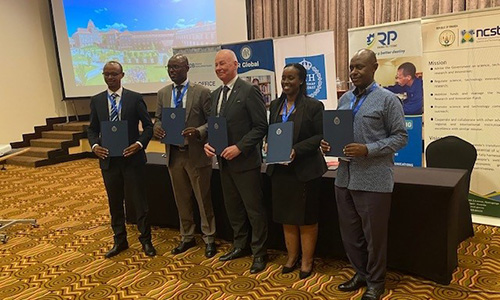KTH's commitment in Africa grows

KTH is investing in further developing its collaborations in education, research and innovation with universities in eastern and southern Africa.
"We work for collaboration on equal terms that will benefit all parties involved," says Christina Murray, international strategist who works with KTH's international strategic initiatives on behalf of KTH's management.
Over the past 20 years, KTH has had various types of cooperation with about ten of the continent's 54 countries. Projects that have often been SIDA-funded and based on principles of capacity building in various prioritised research fields in water, landowner rights, energy and quality assurance in higher education, to name a few. The focus is shifting more and more from capacity building to mutual learning.
" KTH and Sweden have much to learn from the African context and environment. The goal is for KTH to do as much good as possible, both for Africa and Sweden and the world at large. It is about building knowledge, capacity and networks, and this is important at several levels: at the individual level, at the institutional level and, not least, at the national level," says Christina Murray about KTH's strategy for Africa.
The research networks and alumni networks KTH has built up over decades are important bridges between our nations and examples of how "science diplomacy" can be an important instrument for foreign policy.
Large market
Africa is a large market with a growing economy and a young and large population. Around 1.4 billion people live in Africa and about 60 per cent are under the age of 25.

Higher education is scarce in Africa and less than ten per cent of the population is enrolled in universities. The EU has a strong focus on Africa and China and the US have a significant presence in Africa.
" Developments and innovations made on the continent have the potential to become important solutions for developing sustainable societies and new, sustainable technologies. Subject areas such as climate change, public health, sustainable and safe food production are some examples where it is both interesting and important that KTH's researchers follow and are part of. KTH therefore wants to be a driving force in the development of a responsible, mutual and fair cooperation with a focus on selected parts of Africa," says Christina Murray.
Challenge-driven education
Since 2017, KTH has worked through the (GDH) initiative in several countries in Africa, precisely from a sustainability and transition perspective linked to the UN's global goals. The method has been based on challenge-driven education about concrete societal challenges in areas such as water and energy supply in countries such as Tanzania, Kenya, Botswana, Mozambique, Uganda and Rwanda in education, innovation and research.
Last spring, a delegation from KTH travelled to Rwanda to further deepen cooperation in several areas such as innovation and entrepreneurship, energy and climate challenges, food and health.
" As our knowledge of the needs of African countries increases, our involvement can grow in a good way," says Christina Murray.
Where do you hope KTH will be in Africa in ten years?

"That we have contributed to the development of innovation support according to KTH's model, first through a pilot in Kigali in Rwanda, which can then be duplicated in other countries, and that we have contributed to strengthening the countries' ambition to offer relevant education open to all and also involved relevant KTH researchers in our partnerships. That the collaboration between us and our African partner universities has contributed to a sustainable and fair transition that leads to positive development".
What do you think the initiative can mean for students at KTH?
"I hope that you can see this as one of several opportunities to be involved in the work of changing the world. Which in turn helps to strengthen KTH's brand and role in the development of society. I hope to see more fine examples of how new worlds are opened for our students who go to Africa, but also for the African students who come to KTH/Sweden. Something happens to those who encounter a world with different living conditions, social structures and societal norms. This is where the really interesting innovations can be born".
